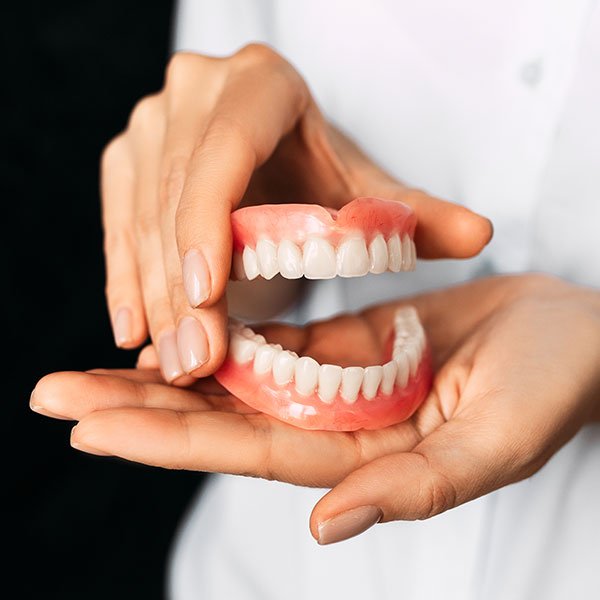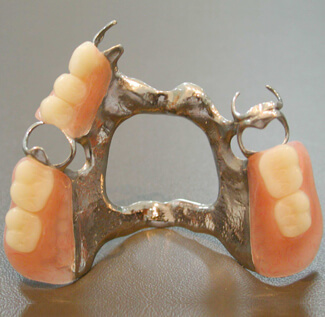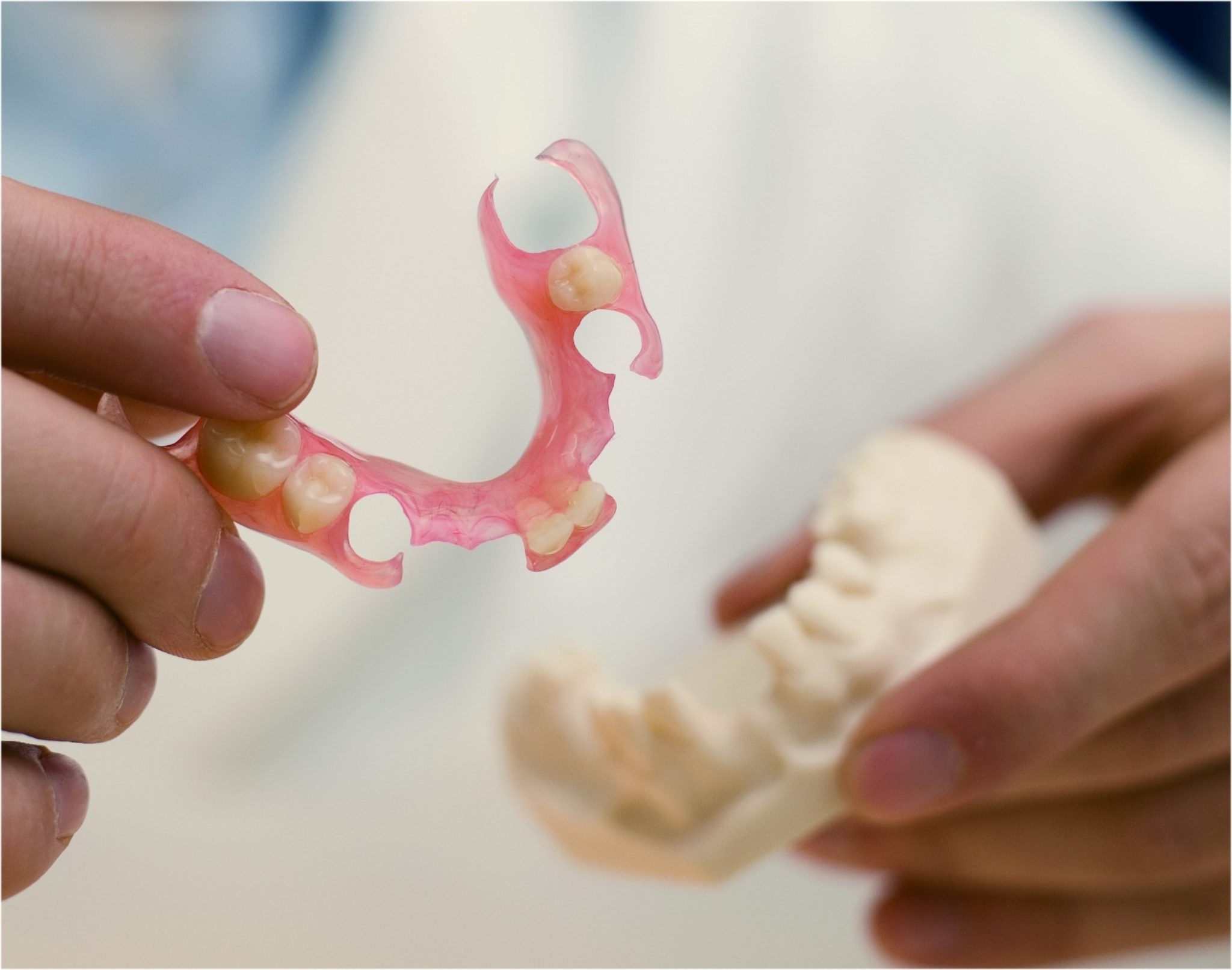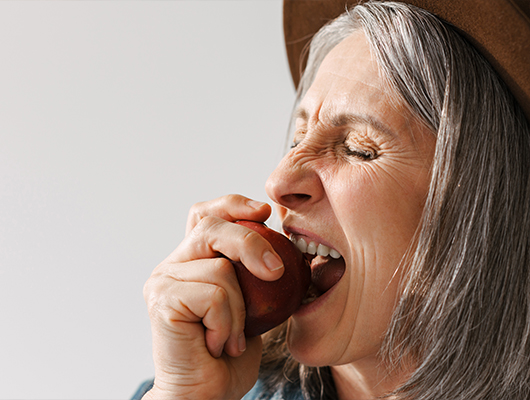OVERVIEW
Dentures are a functional, versatile and aesthetically pleasing solution to replace missing teeth and support gum tissue. Dentures are designed so that they replicate the function of normal teeth, which enables the ability to chew and speak. Dentures can also be shaped to improve the soft tissue profile of the face which provides a fuller and more youthful appearance.
Dentures have many benefits and are a very useful alternative in cases where implants and bridges may not be possible. Dentures can also be connected to implants to improve their stability and retention, which is quite a big problem for many patients with upper and lower complete dentures.
In addition, Dentures are very commonly used as an interim prostheses whilst the mouth is healing for implant surgery, as they can be made quickly and are removable.
APPOINTMENT INFORMATION
The denture development process takes a few weeks and several appointments. Depending on each individual’s case, sometimes all the teeth or only some need to be removed and replaced. Therefore you may need either complete dentures, which are a full set, or partial dentures, which just replace one or a few teeth.
The denture will need to fit well over your gums and jawbone. A trial denture will be created from the impressions taken of your mouth. The shape and colour may be adjusted before the final denture is produced.
Dentures should last several years if you take good care of them. You should continue to see your dentist regularly if you have dentures, even if you have complete dentures, so they can check for any problems.
After you get your dentures, you may need one or more follow-up appointments to get adjustments. Never attempt to adjust or repair dentures yourself!


PRICING
Partial Acrylic Denture: From £485
Full Acrylic Denture: From £695
Partial Chrome Denture: From £1200
Full Chrome Denture: From £1750
Denture Additions / Denture Repairs: From £85
Frequently Asked Questions
What is the best way to care for dentures?
If you remove your dentures, they should be kept moist, for example in water or a polythene bag with some dampened cotton wool in it, or in a suitable overnight denture-cleaning solution. This will stop the denture material from drying out and changing shape.
Also, it’s very important to regularly clean your dentures at least twice a day morning and night, so to remove plaque and food deposits from your dentures.
How important is usual dental hygiene once I have dentures?
Keeping your mouth clean is just as important when you wear dentures. You should brush your remaining teeth, gums and tongue every morning and evening with fluoride toothpaste to prevent tooth decay, gum disease and other dental problems.
Can I eat any type of food with dentures?
Eventually, yes, once you have had your dentures for a short amount of time you can gradually start to eat harder types of food until you’re back to your old diet.
When you first start wearing dentures, you should eat soft foods cut into small pieces and chew slowly, using both sides of your mouth.
It is advisable to not use toothpicks with your dentures.
OVERVIEW
Valplast Dentures
OVERVIEW
Valplast dentures are flexible dentures fitted to your gums. They are used to replace missing teeth and are more flexible and durable than normal acrylic dentures. They are made from a tough nylon type material that is lighter in the mouth making them feel more comfortable and look more natural.
Valplast dentures are also more hypo-allergenic than traditional acrylic dentures and tend to be smaller in size meaning there is less wear and tear on the roof/floor of your mouth so there is less irritation and discomfort.
APPOINTMENT INFORMATION
Like with all dentures this process takes several appointments normally two weeks apart as different stages need to be met to ensure you are happy with the fit, shape and colour of the teeth before the final denture is fitted.
At your first appointment impressions will be taken of your mouth which will then be sent to our dental laboratory to make a special tray which is designed specifically for your mouth and also a wax bite block to measure how your teeth bite together. At the second stage, another impression will be taken using the special tray, made by the laboratory, and your bit taken using the wax block.
Two weeks after this appointment you will be asked to try in your denture, which will be made in wax, to check you like the appearance of the teeth. If you are unhappy then this is sent back to the laboratory and an additional appointment would be required to re-try the denture.
The final stage would then be to fit the finished denture. On occasion, you may need to return to the practice for a slight adjustment of the denture but the dentist would go through this with you at the final appointment.


PRICING
Valplast Dentures (Flexible): From £985
Frequently Asked Questions
What are the benefits of Valplast dentures?
Valplast dentures have been considered a game-changer for dentures. They are lightweight, flexible, easy to use and suitable for patients with allergies.
Do Valplast dentures look better than traditional dentures?
Generally yes, this is because the materials that are used are aimed at suiting the natural colours of the gums and teeth. Also, there are not any metal clasps that can so often be seen with traditional dentures.
How long can Valplast dentures last?
Valplast dentures can last for around 15 years or longer. If you use denture cleaner to keep your fixture in good condition and undergo regular check-ups, this ensures a long and healthy lifespan.



